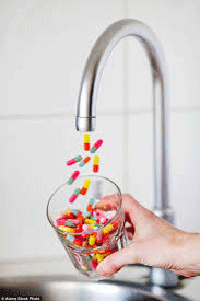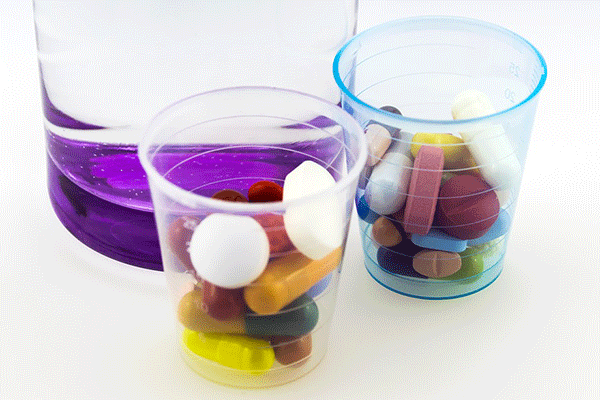 Public water systems are generally not equipped to remove specific medication compounds from wastewater.
Public water systems are generally not equipped to remove specific medication compounds from wastewater.
Do you have old or unneeded medications sitting in your medicine cabinet, cupboards or drawers? Most likely the answer is yes.
Before I go on, you are probably wondering why the water lady is writing about medications?”
Medications can be Water Pollutants
Well the answer to that question is that medications of all types can negatively affect the quality and safety of water. For years, people were told to flush expired or unneeded medications down their toilet or put them in their trash to go to the landfill.
However, public wastewater systems are not generally equipped to remove the specific medication compounds from the wastewater before discharging it back into the environment. Your individual wastewater systems is not equipped to remove those medication compounds either.
Additionally, certain medications can interact with the microbes working within your system to process the waste prior to the water reentering the landscape. Medications disposed of in the landfill can break down over time and potentially end up leeching into the water supply.
Disposal
So if you can’t flush them because it can put your water supply or wastewater system at risk, and you can’t toss them because they can impact the greater water supply within your area, what should you do with them?
This year’s National Drug Take Back Day is April 29th. On that day, you can take any prescription or nonprescription medications back to your local pharmacy so that they can be properly and safely disposed. Also, thanks to the work of the Nebraska MEDS Coalition, you don’t have to worry if you can’t participate on April 29th. The Coalition and their members have worked with pharmacies across the state to make it easier for individuals to return medications to their local pharmacy year-round in most locations.
So make a plan to go through your medicine cabinet, cupboards and drawers to protect your health and the safety of your water system and the environment.
For more information visit Nebraska Meds Coalition or University of Nebraska's Water.unl.edu - Drinking Water website.

